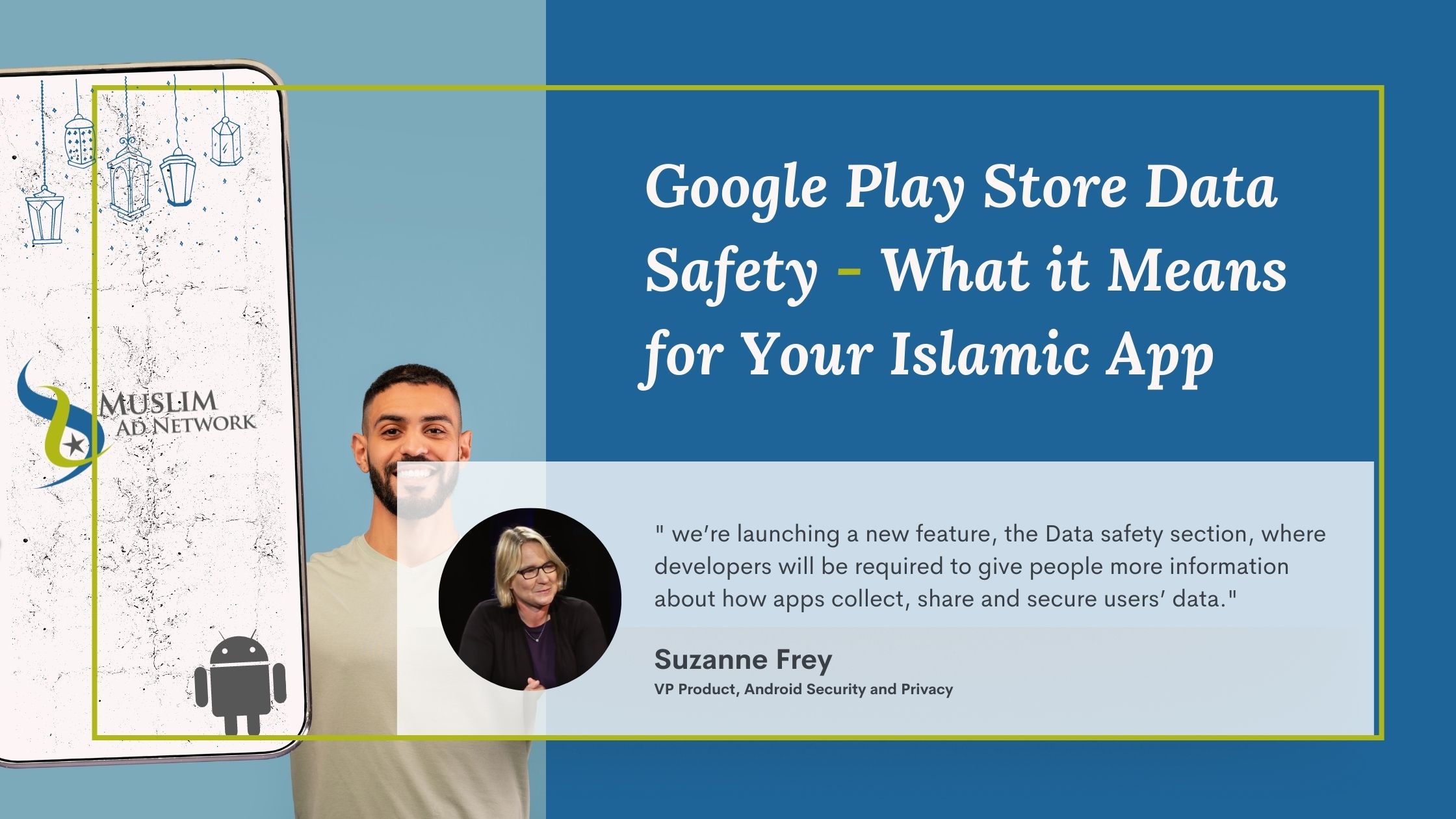
Islamic Apps and Data Privacy Scandals
Remember the shocking news that broke in November 2020 about Muslim Pro? If you don’t, here is a quick reminder. Muslim Pro’s maker allegedly sold user location data to a broker who subsequently supplied the data to U.S. military contractors.
Although there are plenty of Islamic apps that respect the privacy of their users, it did not take long before another Islamic app made the news for all the wrong reasons. This time Salaat First was making the headlines for selling Muslim granular location information to Predicio, which is linked to a U.S. contractor that works with the U.S. Immigration and Customs Enforcement (ICE) and the Federal Bureau of Investigation (FBI).
So far, app creators have enjoyed a relatively lax environment when it comes to privacy and data restrictions compared to other online platforms. However, that’s about to change drastically.
Google Rolls Out Google Play Data Safety for Android Apps
In May 2021, Google announced that their Play Store was going to roll out a “Data safety” section. The new section will be fully functional and available with full developer adoption, set for July 2022.
With the transparency that the “Data safety” section offers end users, issues like the Muslim Pro and Salaat First scandals will be a thing of the past for Android apps. Play Store has made it compulsory to list which data collected from consumers is being stored and for what purpose.
New Policy Gives Your Customers Control
The best part of this new policy is that consumers can see the data being collected and decide whether the app needs this data to function or not. If you look at the Muslim Pro and Salaat First apps’ functionality, they would need the granular location of the Muslim customer to give him or her accurate directions to Makkah, which is a requirement for the five daily prayers.
However, Google also requires app developers to inform users whether their data is being shared with third parties. App developers must also be transparent with the security/handling practices (e.g. in-transit data encryption) of their applications and inform end-users that they can easily ask for their data to be deleted.
Deadline Day
“After July 20, 2022, all apps will be required to have completed an accurate ‘Data safety’ form that discloses their data collection and sharing practices (including apps that do not collect any user data).”
Source: Google Policy Center
Data types covered in the new section feature:
- Location
- Personal info
- Financial
- Health and fitness
- Messages
- Phones and videos
- Audio files
- Files and docs
- Calendar
- Contacts
- App activity
- Web browsing
- App info and performance
- Device or other IDs
Data Collection
As the developer or owner of your Islamic app, you must be clear on which of the data types mentioned above are being collected, meaning: transmitted via your app from a user’s device.
Be aware that even data that is not explicitly associated with a specific end-user, but is linked to a unique ID that could be reasonably reassociated to that person, must be disclosed. Any data processed in memory without being stored is exempt from disclosure, under the condition that it is retained for a period that does not exceed what’s necessary to handle the specific request in real-time, and is not used for any purpose other than service the request.
Note that the new policy does not consider data to be collected under two scenarios:
- Data that is accessed and processed locally on the end user’s device, within your app
- Data that is encrypted end-to-end before being sent from the end-user’s device
Advertise Your Islamic App to Muslims Online
Besides your technical and data safety concerns, exposure to the right Muslim audience is paramount to your Islamic app’s success. Muslim Ad Network has more than a decade’s experience in serving ads to Muslim consumers.
We have helped hundreds of organizations reach over 250 million Muslims in 190 countries and served over 1 billion ads. Contact Muslim Ad Network today and let us discuss how we can work together to reach your desired Muslim audience
